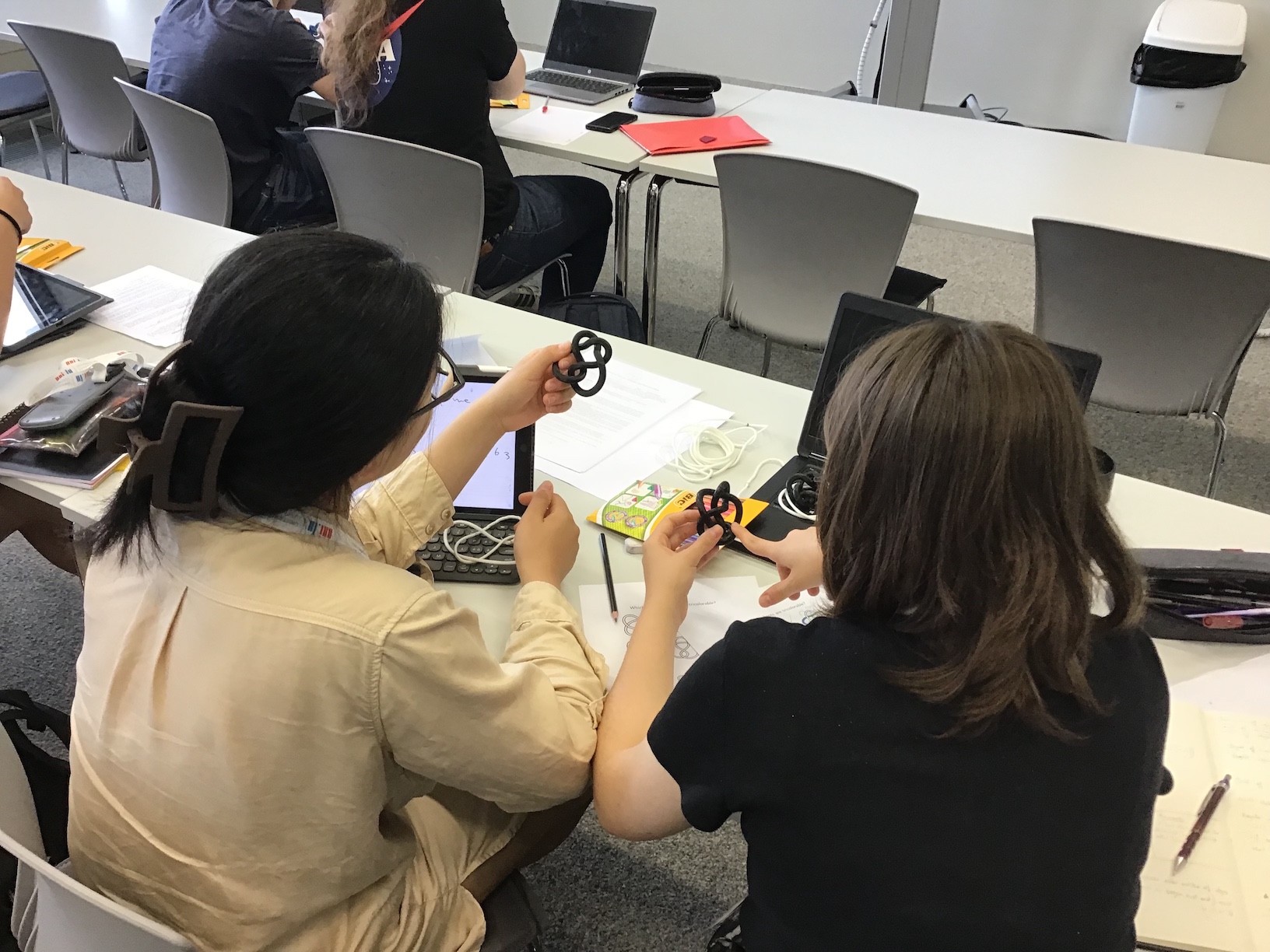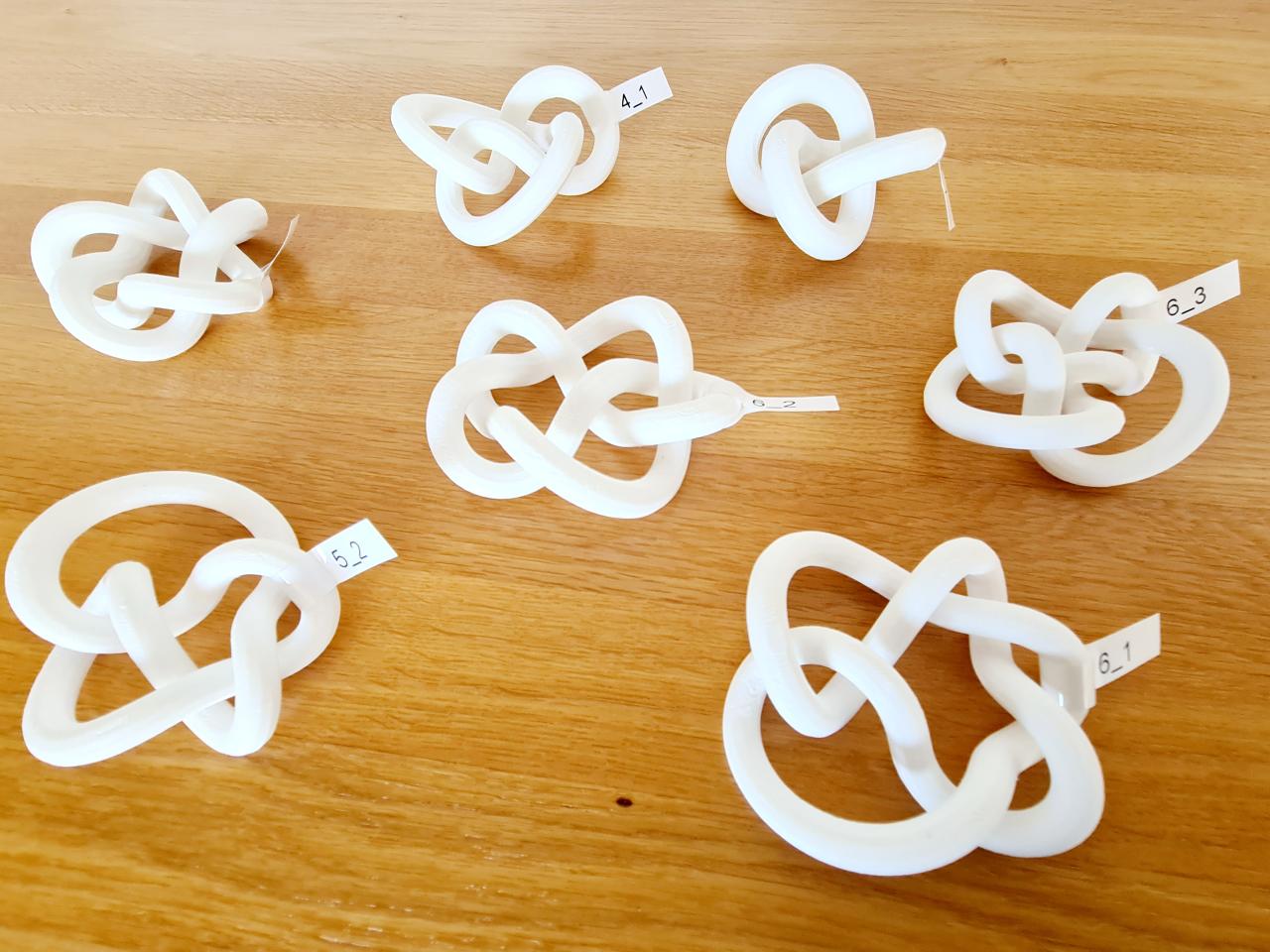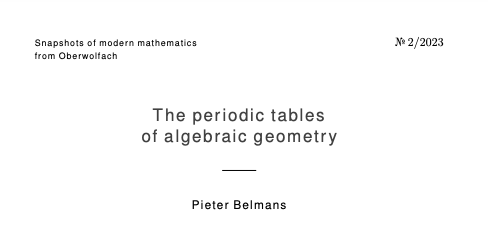Classified Mathematics
This was a PSP-Classic project funded by the FNR in the 2021-2 call, aimed at outreach for different audiences. It concerned the idea that mathematicians like the classify things, just like other scientists do, and that this fact is not sufficiently well-known. The project resulted in
-
Scienteens Lab

An interactive workshop at the Scienteens Lab aimed at high-school students, on the different types of objects that mathematicians study and like to classify. An important tool developed for this interactive workshop, in collaboration with IMAGINARY is Classified graphs, in which you can interact with graphs and study their invariants and classification in a fun way. -
Luxembourg Science Center

A science show at the Luxembourg Science Center, aimed at all audiences, on the different types of objects that mathematicians study and like to classify. -
Oberwolfach Snapshot

A Snapshot of Modern Mathematics from Oberwolfach article, titled "The Periodic Tables of Algebraic Geometry", on the classifications in algebraic geometry.
The abstract for the project read:
An important but underrepresented aspect of current research in mathematics is the role that classifications play. We are familiar with the idea of classification of species in biology, or the classification of elements in chemistry. And moreover these are presented in a visually appealing way: the periodic table of elements is something we immediately associate to chemistry, even if we haven't thought about it since high school.
We propose to organise workshops and create online interactive classification websites, dedicated to existing mathematical classifications. These workshops will feature an overview of what classifications in mathematics mean, and present the participants with a hands-on toy model classification problem. By constructing basic objects (like graphs, and polytopes) in an interactive tool they will learn about abstract mathematical objects, and what it means to classify them. For this we will use a very visual and concrete approach.
To complement this we will create appealing graphical representations of important mathematical classifications, and make these accessible as interactive classification websites. This will make a link between the toy model classification the participants have performed, and ongoing mathematical research. These online classifications will be part of the workshops, but can also be viewed independently, including by university students and even researchers.
By advertising this underrepresented aspect of mathematics, participants will learn about the importance and breadth of mathematical research. Moreover it will get the message across that mathematics is a more diverse science than what they are exposed to in their standard education, which is an important tool to convince more students to study mathematics.